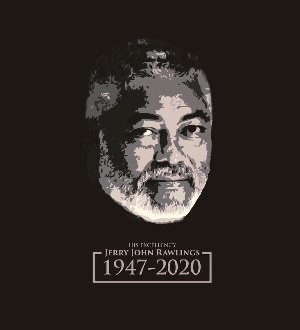Extra-judicial killings during the military era of former president Jerry John Rawlings’ leadership was the darkest blot on his legacy as someone who had ruled Ghana the longest since independence.
According to Prof Emmanuel Gyimah-Boadi of the Afrobarometer think tank, the killings which he called ‘legacy of impunity,’ was the darkest aspect of Rawlings’ legacy.
"His line of defence was to say that some people deserved it, or even that 'you can't make an omelette without breaking eggs'," said Gyimah-Boadi.
"For me, this is the darkest aspect of his legacy: the legacy of impunity," he added in an interview with the AFP news agency. Records show hundreds of documented extrajudicial executions under the former leader. He had over time refused to offer any public apologies to the affected families.
Asked whether her father regretted his action, his daughter Zanetor Agyeman Rawlings told the BBC that her father’s views on the issue are public and she could not posthumously make any comments to that effect.
The particular killing of three high court judges and a retired army general are well reported. The four were Mrs. Justice Cecilia Koranteng-Addo, Mr. Justice Kwadwo Agyei Agyepong, Justice Fred Poku Sarkodie and Major Rtd. Sam Acquah.
On the night of 30 June 1982, Mrs Addo, Justice Poku Sarkodie and Justice Kwadwo Adjei Agyapong, as well as a retired military officer, were abducted from their homes.
The murders took place at the Bundase military shooting range in the Accra Plains during the hours of a night-time curfew.
Click to view details



General News of Monday, 25 January 2021
Source: www.ghanaweb.com

















